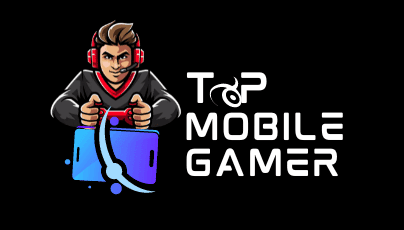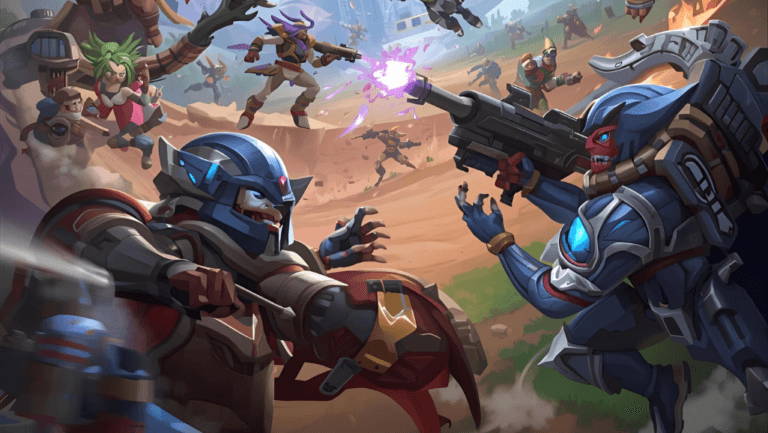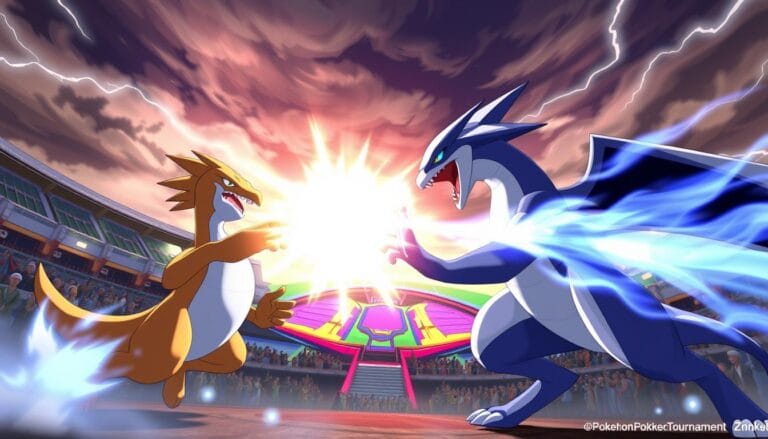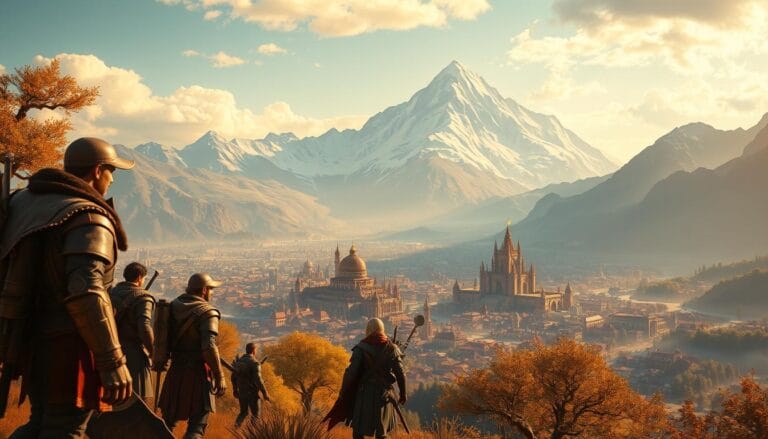Start your next commute or coffee break with confidence. Discover quick, deep play that lets every player lead, outthink, and win in short sessions. This roundup highlights real-time duels, tower sieges, survival sandboxes, and 4X epics that fit a busy day.
Each pick shows why it stands out now: thoughtful design, steady updates, and the thrill of one decisive move. Expect clear notes on mechanics, monetization, and modes so you can match a game to your pace and playstyle.
Smart touch-first interfaces let you command units, micromanage resources, and optimize routes with taps instead of clunky menus. We also point to live events, seasonal metas, and alliance play that keep community interest and downloads high.
Whether you favor rapid tactics or long-term builds, this guide helps you find a title that respects your time and rewards bold decisions. Explore more context and award mentions at strategy video game highlights.
Key Takeaways
- Best Mobile Strategy Games.
- Short sessions can still deliver deep, tactical play.
- Touch-first controls improve command and pacing.
- Live events and updates sustain player communities.
- Pick a title by mechanics, monetization, and playstyle fit.
- Look at downloads and support to gauge longevity.
Why Mobile Strategy Games Captivate Players on the Go
Bite-size encounters fold complex planning into moments you can finish between tasks. They let thoughtful choices and clear rewards fit into a coffee break or a short commute.
The rise of bite-size tactics: quick sessions, deep strategy
Short rounds reward good choices. Each match delivers swift feedback: win a skirmish, earn resources, upgrade units. That loop makes progress feel immediate.
Touch controls make actions feel direct. Dragging units, placing towers, and timing abilities turn seconds into strategic moments.
Present-day popularity: downloads, ratings, and constant updates
Visible signals like ratings and high downloads show what the crowd prefers. Regular releases and balance patches keep the scene active.
- Seasons and live events refresh content weekly.
- Social features let players share tactics and celebrate wins.
- Genre variety — from tower defense to survival loops — fits different playstyles.
In short: these titles mix pick-up-and-play ease with systems that scale. That blend turns casual moments into a lasting experience and fuels steady development across the world of handheld gaming.
How We Picked the Best: Ratings, Depth, and Real-Time Thrills
The question we asked: can a player learn the basics in minutes yet keep improving across months? Our picks balance quick onboarding with systems that reward practice and insight.
Core criteria included community signals, release history, and the quality of competitive content. We favored titles with solid ratings, steady downloads, and clear development roadmaps that signal long-term support.
Real-time excitement mattered. Games that create clutch moments through fast counters and smart pacing ranked higher than those that hide action behind menus.
- Depth that reveals itself quickly: intuitive tutorials and layered mechanics.
- Fair competition: ranked systems, healthy pvp queues, and balanced matchmaking.
- Economy and progression that respect both free players and spenders.
- Social features: alliances, co-op, and guild events to extend life and content.
Finally, we noted million downloads traction when it matched quality. That scale, paired with steady updates, helps ensure a title stays worthy of your time.
Best Mobile Strategy Games: Editor’s Top Picks by Category
Here’s a compact roundup that maps standout titles to how they test your timing, planning, and reaction.
- PvP Arena & Card: Clash Royale (2016 release, 4.3★) pairs fast duels with clever card cycling. Its 600M+ downloads and $10M+ in esports prize dollars show long-term development and competitive depth.
- Classic tower defense: Kingdom Rush 5: Alliance TD (4.6, $6.99) offers handcrafted stages and polished design. Rush Royale: Tower Defense TD (4.2) blends defense lanes with gacha progression for high replay value.
- 4X kingdom builders: Rise of Kingdoms: Lost Crusade (4.5) and Call of Dragons (4.5) deliver open maps, tech trees, and alliance objectives that reward long-term planning and diplomacy.
- Survival: Whiteout Survival (4.1) tests morale and resources in extreme conditions. Last War: Survival Game (4.6) focuses on event-driven progression and short missions that keep momentum high.
- Tactics & auto battlers: TFT: Teamfight Tactics (4.5) rewards economy and positioning. DC: Dark Legion (4.7) layers hero synergies for dramatic, small-screen battles.
- Indie standouts: Stick War: Legacy (4.8) turns simple controls into deep play, and Ant Legion: For The Swarm (4.7) refreshes colony building with competitive flair.
Quick note: These picks balance immediate fun with depth, so new players can jump in and veterans can keep improving. For a wider list and playstyle matchups, see our full roundup at 10 great picks to play on the.
Deep Dives: What Makes These Games Strategic Powerhouses
Deep systems hide inside quick matches, so each decision echoes through later rounds. This section breaks down why a handful of standout titles teach planning, adaptation, and timing in tight sessions.
Clash Royale thrives on fast pvp decisions. Players build 8-card decks to control tempo, punish overextensions, and exploit elixir cycles. Since 2016 it has more than 600M downloads and $10M+ in esports prizes, proving the long arc of development and tactical depth.
Rise of Kingdoms and Call of Dragons move play to the world map. Alliance coordination turns scouting, resource nodes, and choke points into plans for war. These kingdoms reward diplomacy and decisive battle calls as much as raw mechanics.
Kingdom Rush 5 and Rush Royale make every tile count. Tower placement, defense synergies, and timely hero swaps force players to think spatially and adapt wave to wave.
Whiteout Survival and Last War layer base development over scarce resources. Upgrades become trade-offs between safety now or power later, while rotating events keep content fresh and urgent.
TFT and DC: Dark Legion center on drafting, economy, and positioning. Adaptive rolling, interest management, and hero pooling shift tactics from early boards to late-game carries that decide the battle.
- Foresight matters: scouting and build orders expose weaknesses early.
- Progression expands options: development systems reward mastery without locking players out.
- Learning loops: every match becomes a lesson for the next queue.
On-the-Go Optimization: Controls, Monetization, and Update Cadence
Responsive taps and tidy menus turn a few spare minutes into meaningful play. Good design shrinks load screens, surfaces tooltips, and guides new players quickly. That slipstream lets each session focus on choice, not fiddly setup.
Touch-first controls and quick-session design
Direct input matters. Drag, place, and confirm with minimal layers so a player can set a defense, swap a hero, or launch an assault in seconds. Readable icons and tight maps keep clutch calls clear on small screens.
Free-to-play elements: fair PvP, pacing, and value purchases
Progress systems should reward time, not just dollars. Fair matchmaking and steady rewards let skill shape outcomes in pvp. Smart bundles give variety or convenience without locking core mechanics behind paywalls.
Live-ops and steady content cadence
Events, rotating challenges, and seasonal balance keep content fresh and worth returning to. Regular releases and clear patch notes show steady development and build trust with players.
- Short queues and cached loadouts speed re-entry.
- Catch-up milestones welcome returning players.
- Social tools let clans share builds and celebrate wins.
Quick Comparisons: Strategy Depth, War Scales, and PvP Intensity
Strategy unfolds differently depending on whether you play on the quiet board or in a live arena. That contrast helps players pick the format that fits their focus and heart.
Chess vs. Clash Royale: timeless theory vs. real-time adaptability
Chess distills centuries of study into perfect-information play. Openings, middlegames, and endgames reward memorized structures and deep planning.
Clash Royale (2016) turns that calm into a rapid arena. With 600M+ downloads and $10M+ in esports prizes, its meta shifts with each balance patch, rewarding quick reads and reactive tactics.
Small-squad tactics vs. world-scale alliance wars
Small-squad fights prize precision. Every placement and timing choice can decide a short battle.
By contrast, large world wars demand logistics, scouting, and diplomacy. Leadership and coordinated rallies often trump a single heroic win.
- Chess teaches stable foundations; clash arenas force constant adaptation.
- PvP intensity ranges from patient turns to split-second spell drops.
- Legends emerge in both fields — from grandmasters to arena champions.
In the end, whether you favor calculated openings or reactive flanks, the same drive to rise—study, practice, iterate—shapes every path to mastery.
Conclusion
Choose a title that fits how you like to think: quick reflex duels, slow planning, or a blend of both. Let short sessions stack into real experience so each battle teaches something useful.
Value steady development and clear content updates. Favor releases with transparent patch notes, fair progression, and healthy downloads. That signals a greater chance your time keeps paying off.
Look for honest systems where dollars speed convenience, not outcomes. Join alliances, test live events, and watch your hero calls and kingdom plans improve with practice.
In the end, pick the game that sparks curiosity and makes you feel bold. That is how players rise, learn, and win on their own terms.

























